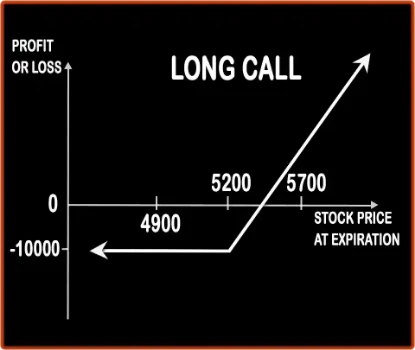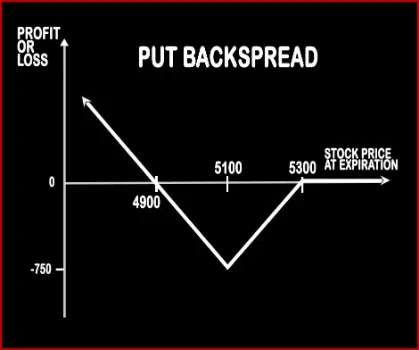Compare Strategies
| LONG CALL | PUT BACKSPREAD | |
|---|---|---|

|

|
|
| About Strategy |
Long Call Option StrategyThis is one of the basic strategies as it involves entering into one position i.e. buying the Call Option only. Any investor who buys the Call Option will be bullish in nature and would be expecting the market to give decent returns in the near future. Risk:
|
Put Backspread Option StrategyIf the trader is bearish on market and bullish in volatility, he will implement this strategy. However the trader can be neutral in nature i.e. indifferent if the market moves in either of the direction, this strategy will make profits, but uptrend will give a capped income than downtrend which will give unlimited returns. |
LONG CALL Vs PUT BACKSPREAD - Details
| LONG CALL | PUT BACKSPREAD | |
|---|---|---|
| Market View | Bullish | Bearish |
| Type (CE/PE) | CE (Call Option) | PE (Put Option) |
| Number Of Positions | 1 | 2 |
| Strategy Level | Beginner Level | Advance |
| Reward Profile | Unlimited | |
| Risk Profile | Limited | |
| Breakeven Point | Strike Price + Premium |
LONG CALL Vs PUT BACKSPREAD - When & How to use ?
| LONG CALL | PUT BACKSPREAD | |
|---|---|---|
| Market View | Bullish (Any investor who buys the Call Option will be bullish in nature and would be expecting the market to give decent returns in the near future.) | Bearish |
| When to use? | This strategy work when an investor expect the underlying instrument move in upward direction. | |
| Action | Buying Call option | |
| Breakeven Point | Strike price + Premium |
LONG CALL Vs PUT BACKSPREAD - Risk & Reward
| LONG CALL | PUT BACKSPREAD | |
|---|---|---|
| Maximum Profit Scenario | Underlying Asset close above from the strike price on expiry. | |
| Maximum Loss Scenario | Premium Paid | |
| Risk | Limited | Limited |
| Reward | Unlimited | Unlimited |
LONG CALL Vs PUT BACKSPREAD - Strategy Pros & Cons
| LONG CALL | PUT BACKSPREAD | |
|---|---|---|
| Similar Strategies | Protective Put | |
| Disadvantage | • In this strategy, there is not protection against the underlying stock falling in value. • 100% loss if the strike price, expiration dates or underlying stocks are badly chosen. | |
| Advantages | • Less investment, more profit. • Unlimited profit with limited risk. • High leverage than simply owning the stock. |